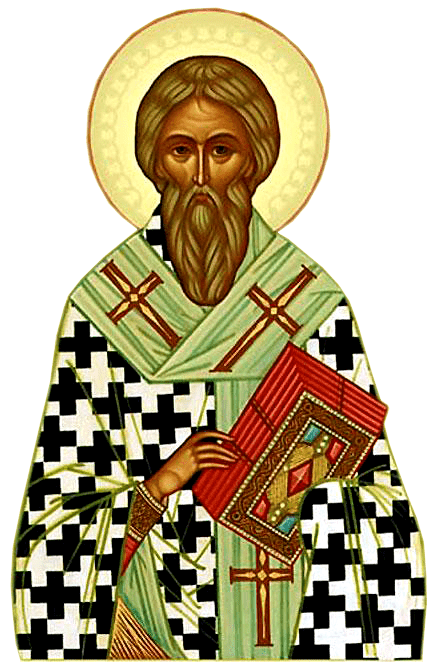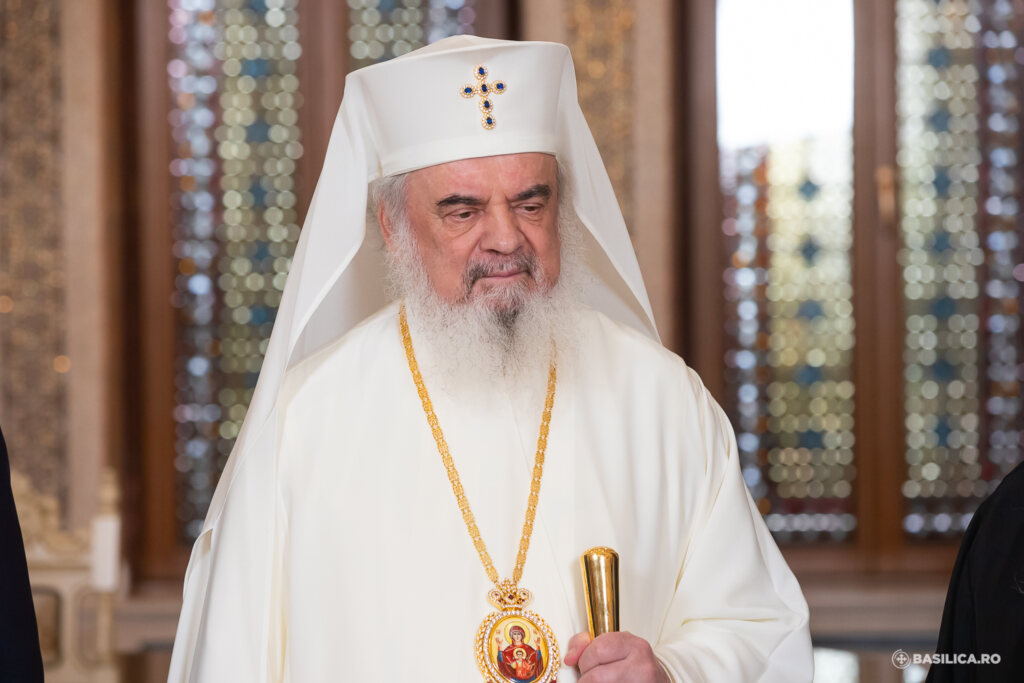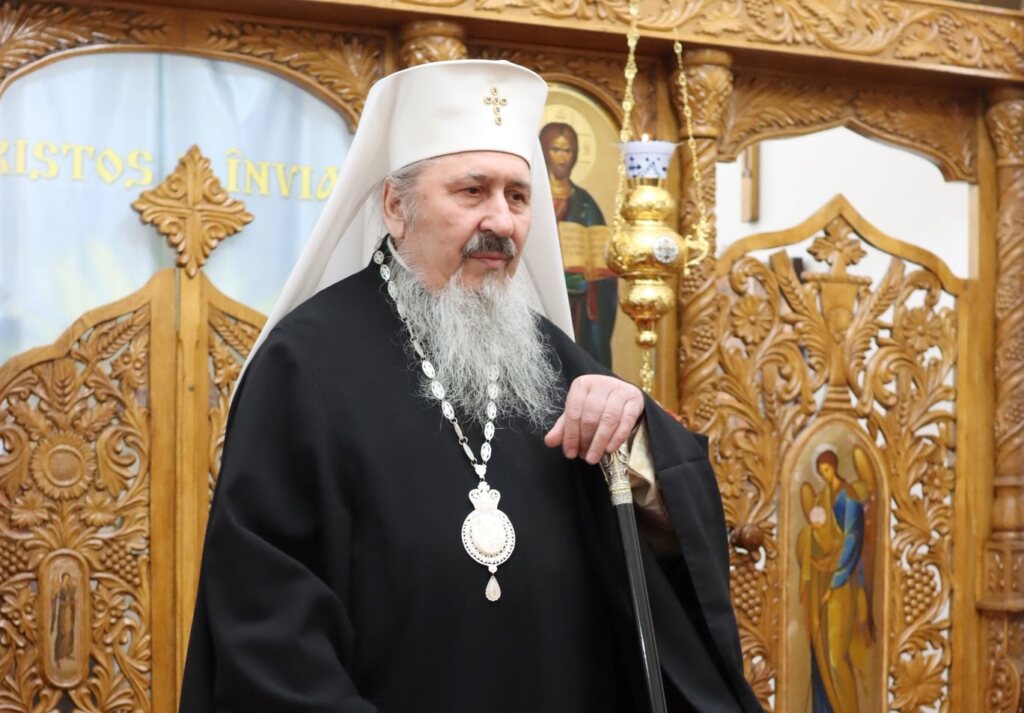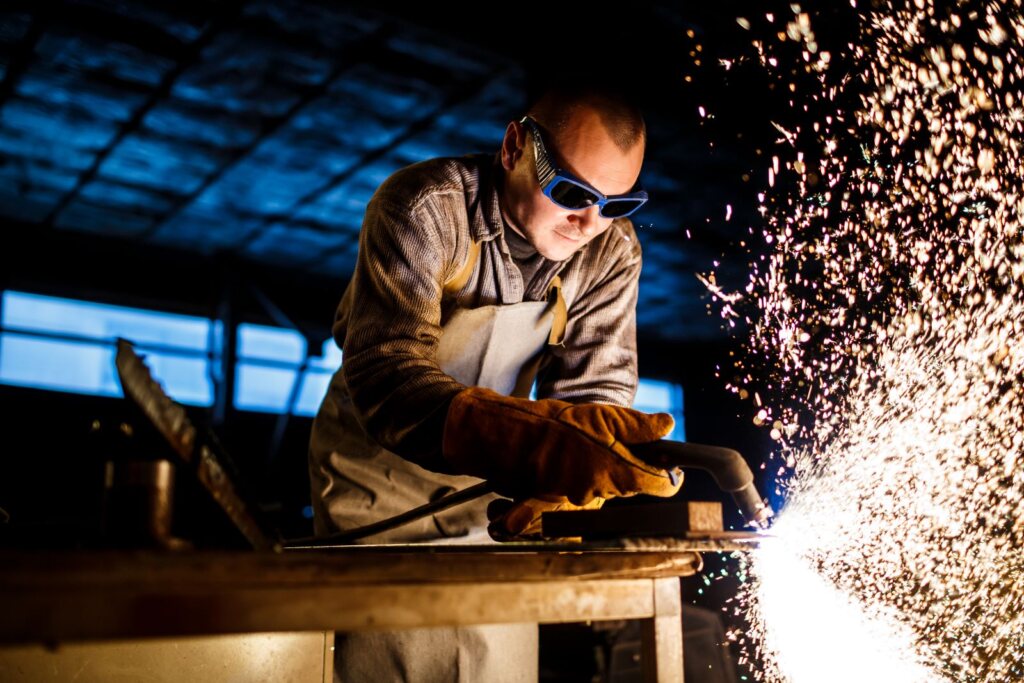Holy Great Martyr Mamas
He was born in Paphlagonia, Asia Minor in the third century of pious and illustrious parents, the Christians Theodotus and Rufina. The parents of the saint were arrested by the pagans for their open confession of their faith and locked up in prison in Caesarea in Cappadocia.
Knowing his own bodily weakness, Theodotus prayed that the Lord would take him before being subjected to tortures. The Lord heard his prayer and he died in prison. Saint Rufina died also after him, after giving birth to a premature son. She entrusted him to God, beseeching Him to be the Protector and Defender of the orphaned infant.
God heard the dying prayer of Saint Rufina: a rich Christian widow named Ammia reverently buried the bodies of Saints Theodotus and Rufina, and she took the boy into her own home and raised him as her own son. Saint Mamas grew up in the Christian Faith. His foster mother concerned herself with the developing of his natural abilities, and early on she sent him off to study his grammar.
The boy learned easily and willingly. He was not of an age of mature judgment but distinguished himself by maturity of mind and of heart. By means of prudent conversations and personal example young Mamas converted many of his own peers to Christianity.
The governor, Democritus, was informed of this, and the fifteen-year-old Mamas was arrested and brought to trial. In deference to his illustrious parentage, Democritus decided not to subject him to torture, but instead sent him off to the emperor Aurelian (270-275).
The emperor tried at first kindly, but then with threats to turn Saint Mamas back to the pagan faith, but all in vain. The saint bravely confessed himself a Christian and pointed out the madness of the pagans in their worship of lifeless idols.
Infuriated, the emperor subjected the youth to cruel tortures. They tried to drown the saint, but an angel of the Lord saved Saint Mamas and bade him live on a high mountain in the wilderness, not far from Caesarea. Bowing to the will of God, the saint built a small church there and began to lead a life of strict temperance, in exploits of fasting and prayer.
Soon he received a remarkable power over the forces of nature: wild beasts inhabiting the surrounding wilderness gathered at his abode and listened to the reading of the Holy Gospel. Saint Mamas nourished himself on the milk of wild goats and deer.
The saint did not ignore the needs of his neighbors. Preparing cheese from this milk, he gave it away freely to the poor. Soon the fame of Saint Mamas’s life spread throughout all of Caesarea.
The governor sent a detachment of soldiers to arrest him. When they encountered Saint Mamas on the mountain, the soldiers did not recognize him, and mistook him for a simple shepherd. The saint then invited them to his dwelling, gave them a drink of milk and then told them his name, knowing that death for Christ awaited him.
The servant of God told the servant of the Emperor to go on ahead of him into Caesaria, promising that he would soon follow. The soldiers waited for him at the gates of the city, and Saint Mamas, accompanied by a lion, met them there.
Surrendering himself into the hands of the torturers, Saint Mamas was brought to trial under a deputy governor named Alexander, who subjected him to intense and prolonged tortures. They did not break the saint’s will, however. He was strengthened by the words addressed to him from above: “Be strong and take courage, Mamas.”
When they threw Saint Mamas to the wild beasts, these creatures would not touch him. Finally, one of the pagan priests struck him with a trident. Mortally wounded, Saint Mamas went out beyond the city limits. There, in a small stone cave, he gave up his spirit to God, Who in the hearing of all summoned the holy Martyr Mamas into His heavenly habitation. He was buried by believers at the place of his death.
Christians soon began to receive help from him in their afflictions and sorrows. Saint Basil the Great speaks thus about the holy Martyr Mamas in a sermon to the people: “Remember the holy martyr, you who live here and have him as a helper.
You who call on his name have been helped by him. Those in error he has guided into life. Those whom he has healed of infirmity, those whose children were dead he has restored to life, those whose life he has prolonged: let us all come together as one, and praise the martyr!”
Troparion — Tone 3
Divine offshoot of the Martyrs, / you followed their steps with longing, / and while proclaiming the Savior’s Name, you were marvelous in the contest, / O wise and glorious Mámas; / entreat Christ God to grant us great mercy.
St. John the Faster, Patriarch of Constantinople

Our Holy Father John was born in Constantinople, the Queen of Cities. At first, he worked as a goldsmith, and everyone expected him to continue in that occupation. From his youth, however, he was inclined toward the monastic life.
He also possessed a rare gift for continence and a natural love for fasting, and thus he was known as “the Faster.” Because of his reputation for virtue, he was ordained as a deacon by Patriarch John III, and later he received the grace of the priesthood.
Saint John was found worthy to behold a vision which showed that he would become be a worthy recipient of God’s grace, for the spiritual enlightenment of his flock. He read the Holy Scriptures and other ecclesiastical books every day, thereby enriching his knowledge.
Once, when he was a young man, John was walking with Eusebius, an old monk from Palestine. Suddenly, a bodiless voice spoke to Eusebius: “Abba, do not walk to the right of the great John.” It was the voice of God, foretelling the great service to which John would shortly be called.
After the death of Patriarch Eutychius, Saint John was chosen to succeed him. He did not want to accept the office, but he was frightened by a heavenly vision, and so he consented. By the example of his own life, he taught all believers to restrain their capricious desires and to control themselves.
The hierarch was unable to abide his flock’s blatant disregard for the institutions of the Church. When the citizens of Constantinople decided to give in to their passions by attending a horse show in the Hippodrome on eve of the Feast of Pentecost, the hierarch fell on his knees before God and fervently prayed that the Lord would thwart their impious intention.
As soon as the people began to make their way to the Hippodrome, a terrible storm arose with thunder, rain and hailstones so that everyone dispersed in fear and came to realize the inappropriateness of such entertainment.
St John was Patriarch of Constantinople from 582 – 595, and was the first to use the title “Ecumenical Patriarch.”
He was a great faster, intercessor and wonderworker right up to the time of his death. Distinguished for his abstinence and prayer, Saint John had such a love for the poor that he refused them nothing from his estate. After his death, his only personal possessions were found to be a wooden spoon, a linen shirt and an old garment. His writings on repentance and Confession are well known.
After a virtuous life of piety, during which he performed many miracles, Saint John reposed on September 2, 595. His grace-filled relics were entombed in the Church of the Holy Apostles.
Saint John is also commemorated on August 30.
Troparion — Tone 4
In truth you were revealed to your flock as a rule of faith, / an image of humility and a teacher of abstinence; / your humility exalted you; / your poverty enriched you. / Hierarch Father John, / entreat Christ our God / that our souls may be saved.






